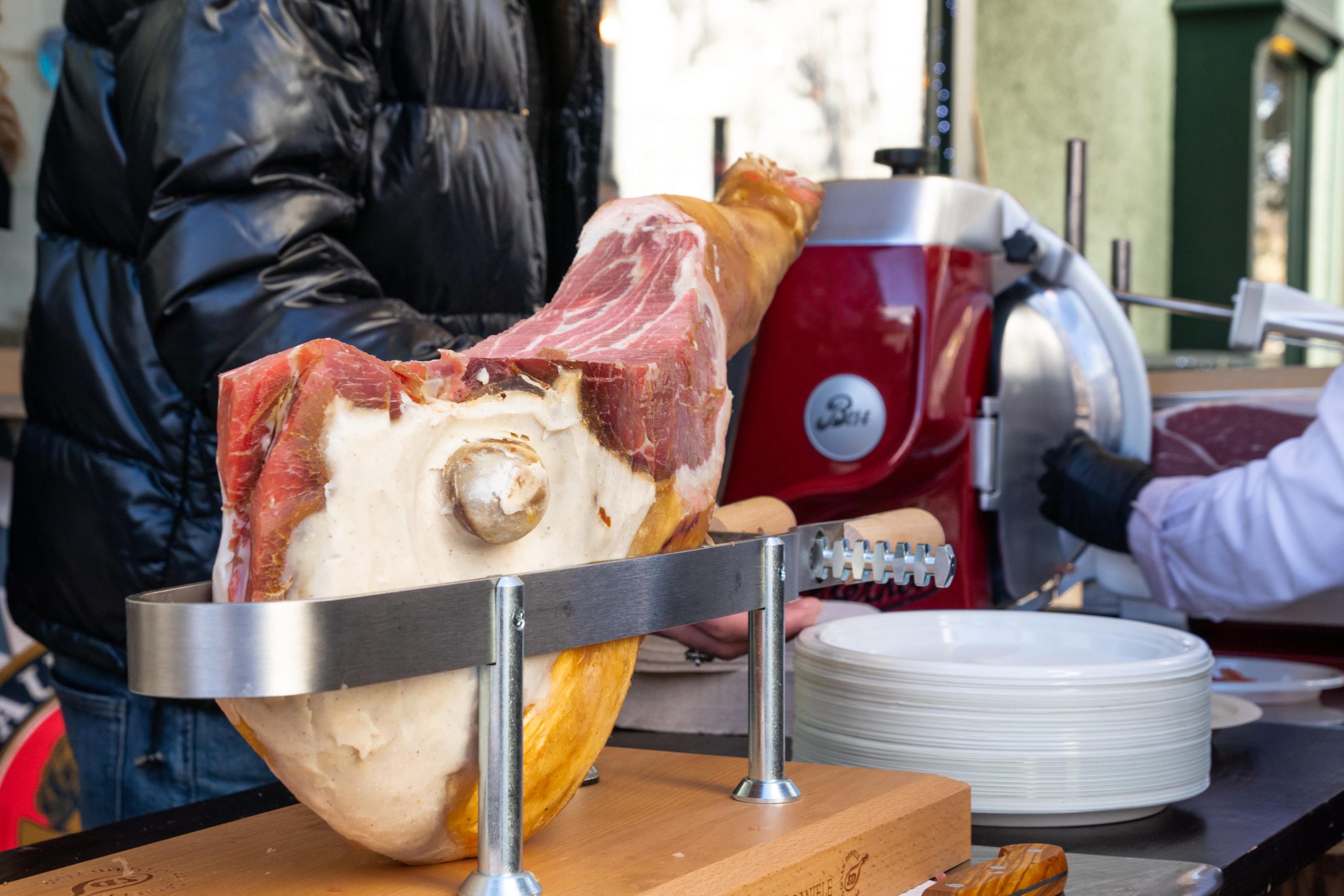Some people eat to live, others live to eat.
The Italian way is usually the latter, and we could all learn a lot by their approach to food – from planning and shopping for ingredients, to preparing and eating meals.
For those with busy lives, a weekly shop at the supermarket will fulfil all of the family’s dietary requirements for the next seven days, but where’s the joy in that? And how fresh will the food that you bought on Monday be by Friday?
For many people, food is just fuel, but in Italy food is a way of life and goes right to the very heart of the Italian lifestyle and culture.
Many Italians will shop for food at their local market (nearly every village, town and city will have at least one) for all the ingredients required for the day’s lunch and dinner. The weekly food market in San Daniele del Friuli is held every Wednesday in Via Trento e Trieste for example, and is a great opportunity for locals to stock up on delicious fresh produce.
There are broadly two types of people when it comes to food shopping – those who plan their menus in advance and shop accordingly, while others will look at what’s available at the market on that particular day, and make their decisions about dinner as they browse around the stalls. Which type are you?
Perhaps you are a mix of both, and will have a shopping list in hand as you set out for the shops, but you are also ready and willing to pick up some added impulse buys too.
One of the joys of shopping locally, and especially at one of the many Farmer’s Markets that have popped up across the world, is that you are also benefitting from shopping seasonally. Unlike in major supermarkets, you won’t see strawberries flown in from across the world in the middle of winter.
So, depending on the time of year, that essential ingredient for tonight’s dinner may not be available, which means you have to be prepared to make last minute substitutions, or a complete rethink of the menu!
At local markets you will get the opportunity to get to know – and be known by – the individual stallholders and will begin to build up a long relationship with them. Chatting over a table groaning with fresh produce, you can ask them how they came to be in the grocery business, how they grow their produce and ask them for tips on how to cook with their products.
As these traders will know their produce inside out, they will happily give advice on the freshest and tastiest ingredients, or what is the best value for money. You won’t find such comprehensive information or rich knowledge at your local supermarket. Local growers will also know exactly where their stock has come from, an important factor for those who see the value of both sustainability, and ensuring support for local suppliers.
Having stocked up on the all-important fresh fruit and vegetables, other essential ingredients for dinner will require a trip to the bakery for bread, or a cake for dessert. Every Italian region has its specialty and favourites – these can even vary from village to village! For example, you will only find gubana, a yeast bread roll filled with nuts, dried fruits, cocoa, sweet wine and cinnamon popular at Christmas, in the north east of Italy, while the Milanese panettone cake is now popular in many parts of the world.
While on holiday, it’s always a great idea to check out the local markets in your destination, you’ll be surprised and delighted at the unfamiliar-to-you items you’ll see being sold.
Few Italian meals are complete without the addition of meat and fish, so stop by the local butcher and fishmonger– while these vendors probably won’t necessarily produce their own stock, chances are they will have a pretty good idea where it’s come from. They will almost certainly be able to advise of its origin, and can usually prepare any cut of meat, or fillet a fish, to your requirements.
The culmination of a day’s shopping will be the preparation and serving of a meal – as Italian family life revolves around the dinner table, most families will dine together as often as possible, while those living on their own may invite a friend or neighbour around for food and a chat.
So if one of your ambitions for the year ahead is to be more Italian, there’s no time like the present!
